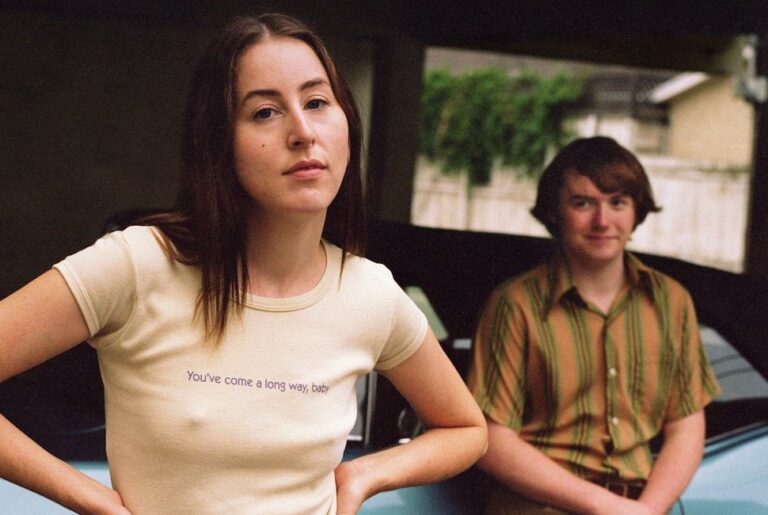Any new Paul Thomas Anderson film is a landmark occasion. His last offering, 2017’s gorgeous and haunting drama Phantom Thread, was Daniel Day-Lewis’ last acting performance; in Phantom Thread, The Master, and There Will Be Blood, PTA can lay claim to three of the greatest films of the 21st century.
His latest is the upcoming Licorice Pizza, a coming-of-age drama set in the director’s favourite haunt of California. Starring Alana Haim (of Haim) and Cooper Hoffman (son of the late Philip Seymour Hoffman) as a pair of young dreamers who begin to fall in love in the San Fernando Valley in the 70s, most of the early reaction to the film has been nothing but acclaim.
The Guardian called it PTA’s “funniest and most relaxed film yet”; in a four-star review, RogerEbert.com wrote that Licorice Pizza “is so dreamy, so full of possibility, it’s as if it couldn’t actually have existed. With its lengthy, magic-hour walk-and-talks and its sense of adventure around every corner and down every block, it’s a place where anything could happen as day turns to night”; when the 2022 Golden Globe nominations were announced, it was up for four awards, including Best Picture – Musical/Comedy.
Yet on social media, it’s been a different story. Some scenes involving a fake Asian accent have come in for criticism: John Michael Higgins plays a white restaurant owner who speaks to his Japanese wife with a fake Asian accent. he later appears again with a new Japanese wife, and the gag is repeated.
That didn’t go down well with some people on Twitter. “Picture this: You’re watching LICORICE PIZZA. It’s brilliant,” David Chen, host of a podcast called Culturally Relevant, wrote. “Then, early on, a buffoonish character drops an Asian caricature. The (mostly white) audience laughs. And now you gotta think about that laughter the rest of the film.”
Screenwriter Karen Maine shared Chen’s opinion. “There’s an incredibly racist, seemingly pointless (other than a cheap laugh, which it got at the screening I was at) scene that mocks Asian accents,” she said.
Aremenian and Iraqi filmmaker Anita Sarkeesian was the most vocal opponent, making a lengthy Twitter thread about the issue. “After you watch Licorice Pizza please have a conversation with your friends about how just showing racism isn’t a critique of racism. It is actually doing racism,” she insisted.
Love Film & TV?
Get the latest Film & TV news, features, updates and giveaways straight to your inbox Learn more
“Licorice Pizza is set in the 70s and therefore one could argue it is presenting dominant attitudes of the time but that in and of itself is not enough to justify its existence in perpetuating racist attitudes to modern viewers today, we are not beyond anti-Asian racism in 2021.”
https://twitter.com/davechensky/status/1461565715173969923?s=21
I saw #LicoricePizza over a week ago and it's taken me this long to process it. There's an incredibly racist, seemingly pointless (other than a cheap laugh, which it got at the screening I was at) scene that mocks Asian accents.
— Karen Maine (@karen__maine) November 22, 2021
After you watch Licorice Pizza please have a conversation with your friends about how just showing racism isn’t a critique of racism. It is actually doing racism.
Here are some talking points:
— Anita Sarkeesian ✨ NEW SHOW OUT NOW (@anitasarkeesian) December 13, 2021
It’s been a similar story over on TikTok. @hugeasmammoth.films posted a video last month after watching an early screening of the film. They noted that Licorice Pizza made them “uncomfortable as f***, as someone who’s been mocked for my accent, being Asian, among other things.”
“That one subplot in the film involving a Japanese restaurant made me hella uncomfortable and caught me off guard. As soon as that scene happened, that was all I could think about and because of that, I did not enjoy the film. And seeing most of the theater erupt in laughter and clap, my heart sank,” they explained. Another TikTok user, @somewhere_in_june, also claimed the film was “super racist.”
There’s been a lot of pushback against these critiques. Many wished to point out that depictions of things in art don’t equate to endorsements (the examples of Schindler’s List and Goodfellas were mentioned by Twitter users).
“Don’t forget, if a character does something racist in a movie, another character needs to look into the camera and say, “Racism is bad” and stare unblinking for at least ten seconds. Coloring books with activities about what you saw will be passed out at the exits.” wrote one user.
“This is a horrible way to interact with art. I call this Disney brain,” noted another user with a very popular tweet liked over 20K times.
https://twitter.com/bloodoftheland/status/1470874572689838081?s=21
This is a horrible way to interact with art. I call this Disney brain https://t.co/IKldgJnnai
— Lisa Dreher (@lisa_dreher97) December 13, 2021
The criticisms feel like they have a lot to do with fundamentally underestimating the general audience’s ability to notice things onscreen that are bad. Another aspect of Licorice Pizza has been met with disapproval – the age gap between Alana Haim’s character and Cooper Hoffman’s teenage character – but Michel Haneke’s The Piano Teacher – starring the overpowering Isabelle Huppert – remains one of the best films of the last few decades and it contains a much larger age gap.
Licorice Pizza is set in the 70s, a vastly different time. For his part, PTA addressed the issue in a recent New York Times interview, touching on his own personal experience. “I think it would be a mistake to tell a period film through the eyes of 2021,” he considered.
“You can’t have a crystal ball, you have to be honest to that time. Not that it wouldn’t happen right now, by the way. My mother-in-law’s Japanese and my father-in-law is white, so seeing people speak English to her with a Japanese accent is something that happens all the time. I don’t think they even know they’re doing it.”
A quote from the author Ottessa Moshfegh – although she was particularly referring to literature – seems relevant here. “I wish that future novelists would reject the pressure to write for the betterment of society. Art is not media…A novel is a literary work of art meant to expand consciousness. We need novels that live in an amoral universe, past the political agenda described on social media. We have imaginations for a reason.
Novels like American Psycho and Lolita did not poison culture. Murderous corporations and exploitive industries did. We need characters in novels to be free to range into the dark and wrong. How else will we understand ourselves?”
You can make your own mind up when Licorice Pizza is released on Christmas Day.
For more on this topic, follow the Film & TV Observer.
Check out the trailer for Licorice Pizza:


































